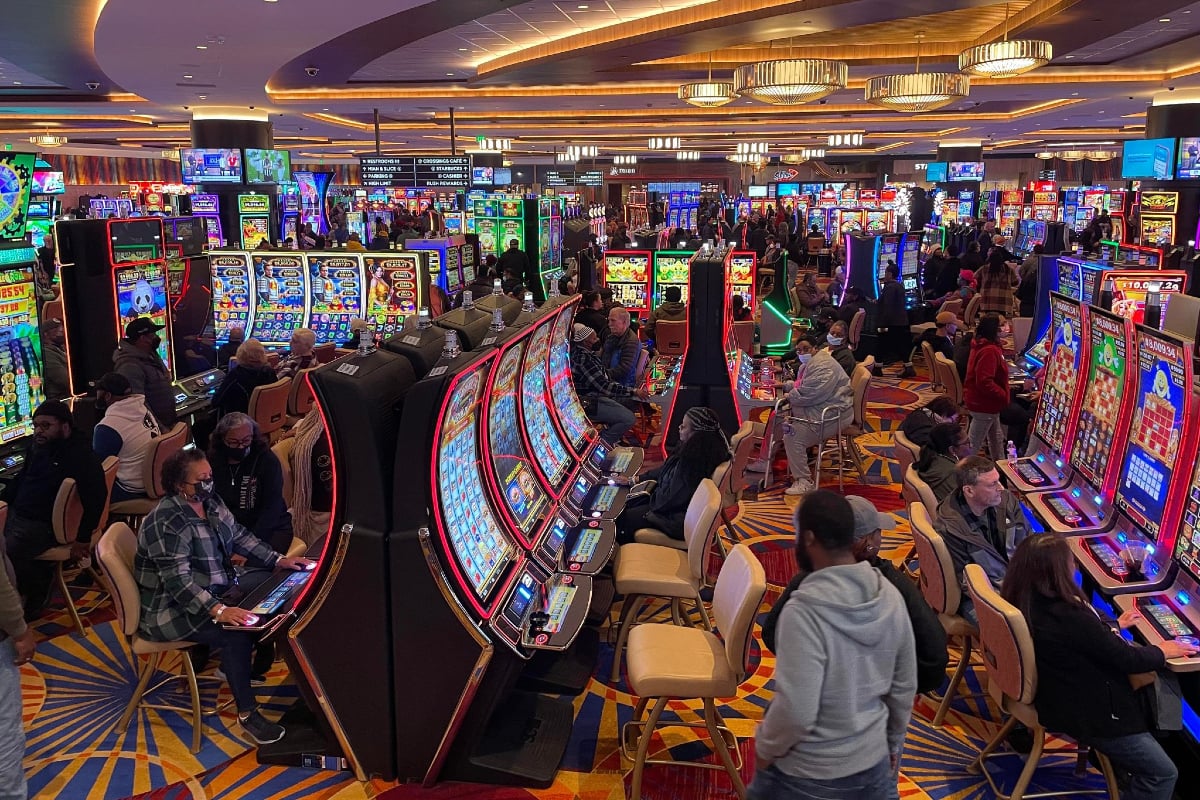Betting has been an integral part of human entertainment for thousands of years, transforming through societies and periods to become the dynamic casino games we know today. From the historical Chinese and Romans, who participated in various forms of gambling and luck, to the advanced gaming floors of contemporary casinos, the attraction of gamble and reward has fascinated individuals across the globe. The shift from simple dice games and primitive betting setups to the extravagant environments of contemporary casinos reflects significant strides in both cultural standards and technological advancements.
As cultures evolved, so too did the complexity of gambling activities, with casino games emerging as a separate category of leisure and excitement. These activities have transformed from informal gatherings centered around wooden tables to expansive, opulent establishments designed to attract players. https://789win.dental/ Today, we explore this captivating journey, analyzing how historical practices laid the groundwork for the varied and exciting casino activities that bring pleasure to countless people worldwide.
spintax
Early Gambling Practices
Betting has profound roots in human past, with indications of games of chance tracing back to ancient societies. Archaeologists have found that as far back as 3000 BC, the people of China were using basic forms of gambling with dice made from wood. đăng nhập 789win Similarly, ancient Mesopotamians engaged in gambling activities, often relying on the tossing of lots or dice to determine winners. These early forms of betting served not only as amusement but also played important roles in social and cultural customs.

The Egyptians also were involved in gambling activities, with games that included betting on the outcomes of various occurrences, including athletic events and religious festivals. Items such as dice and depictions of players from ancient tombs illustrate that betting was a popular pastime. It provided both relaxation and a means of engaging in social interaction, often linked to festive occasions or important gatherings. This behavior showed the universal appeal of chance and competition throughout history.
In ancient Rome, betting became a commonplace practice among the citizens, as reflected by references in literature and the establishment of rules around certain activities. Romans enjoyed a variety of gambling activities, from wagering on chariot races to playing games similar to modern-day board games. The legal system surrounding these activities began to take shape, establishing the foundations for betting regulations that would develop in the centuries to come. The prevalence of gambling during this period set the stage for the development of gambling house games in the future.
The Progression of Casino Games
Gambling games have undergone notable transformations from their roots to the contemporary entertainment options. In early civilizations, gaming was commonly associated to ceremonial practices, with games of dice found in Mesopotamia and wagering on the outcomes of events in ancient Rome. These early forms of gambling laid the basis for the formal games we see today. The shift from informal gambling to regulated games occurred as societies began creating rules and venues for wagering, reflecting cultural values and practices.
The medieval period saw the emergence of card games, which gained popularity among European nobility. Games like primero and baccarat became staples in social gatherings. The development of printing technology additionally enabled the spread of playing cards, making them more available to the common people. As gambling houses began to increase, these card games transformed into adaptations that catered to wider audiences, eventually leading to the founding of casinos as specialized venues for gaming.
The 20th century marked a pivotal point in the evolution of casino games, with the ascendancy of commercial casinos in Las Vegas and other gambling hotspots. This era saw the introduction of games like video slots and modern versions of table games, complete with high-quality graphics and complex betting structures. The advent of online casinos in the late 1990s additionally changed the gaming industry, allowing players to access a vast array of casino games from the comfort of their homes. Today, casino games continue to evolve, blending time-honored elements with cutting-edge technology to create captivating experiences for players worldwide.
Contemporary Gambling Regulations
In the past few years, the landscape of gaming regulations has evolved considerably, especially as tech advances and internet-based gambling have become ever prevalent. Regulatory bodies around the globe have implemented numerous regulations and guidelines to ensure that gaming activities are carried out equally, responsibly, and openly. These laws often encompass elements such as permits, advertising, gambler protection, and responsible gaming measures. Authorities aim to mitigate issues such as gambling addiction and cheating while fostering a fair gambling environment.
The growth of online gambling sites has necessitated a different approach to regulation. Many legal areas have created specific internet-based gambling frameworks that serve online gaming, enabling operators to provide their offerings within the law. These frameworks often require operators to get permits, adhere to strict safety standards, and provide customer support options to help players. By closely monitoring internet activities, authorities can better protect players from potential harm and ensure that gambling is carried out in a safe manner.
Moreover, modern gaming regulations are increasingly centering around responsible gambling strategies. Many gaming establishments and internet-based platforms now adopt features such as self-exclusion, deposit limits, and breaks to help players manage their gaming habits. Awareness campaigns aimed at educating about the risks of gaming are also frequent. As the industry continues to grow, the focus on responsible gambling remains a fundamental principle of governing efforts, reflecting a commitment to promoting a safe and enjoyable gaming experience for all gamblers.